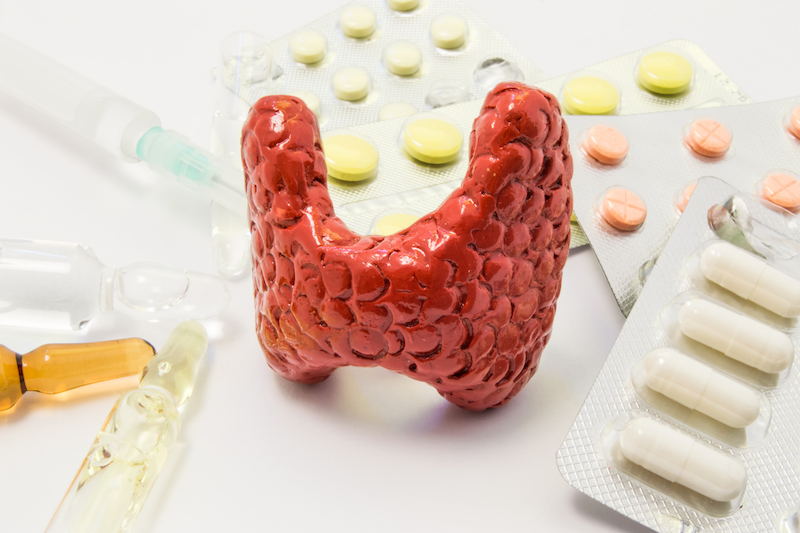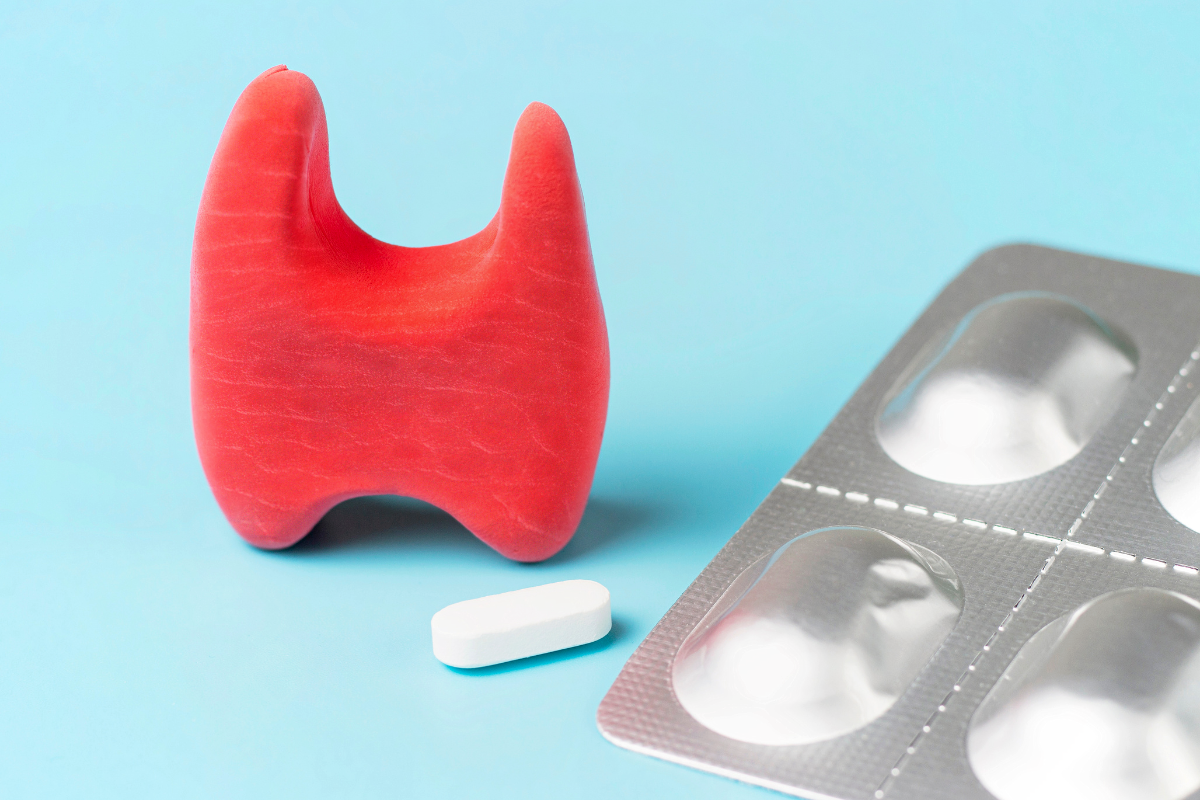Why is my hypothyroidism so hard to manage while I’m postpartum (and possibly perimenopausal)?
—EllieTSH
It is true that thyroid hormone levels fluctuate a lot during the pregnancy, postpartum, and perimenopausal periods. This is true whether you have hypothyroidism or not, but when you are getting your thyroid hormone from a pill instead of from your thyroid, it is much more obvious when these shifts occur.

The fluctuations stem from the interplay between estrogen and thyroid hormone. This may get a little technical, so stick with me here. More than 99% of the thyroid hormone circulating in your blood is bound to proteins. Your body can only use the tiny fraction of thyroid hormone that is not bound to protein — called free thyroid hormone. Estrogen increases the amount of proteins your body makes. So to keep the amount of free thyroid hormone the same, your thyroid will need to make and release more thyroid hormone — or, in your case, you will need to take more.
What does that look like as you move from one hormonal state to the next? During pregnancy, women need, on average, 40% more thyroid hormone than when they aren’t pregnant. If you have a functioning thyroid, it will just make that extra thyroid hormone, but if you have hypothyroidism you will likely need to increase the dose of thyroid hormone you take each day.
In the weeks after pregnancy, estrogen levels plummet. As the body metabolizes the existing thyroid hormone and proteins, you will need less thyroid hormone. If you are hypothyroid, here again you are likely to need to adjust your dose of thyroid hormone, but this time downward.
Perimenopause can be especially tricky. Estrogen levels can shoot up and then drop precipitously. This can cause shifts in the levels of binding proteins. Plus, many women gain weight during perimenopause. Bigger bodies need more thyroid hormone. As a result, during perimenopause, thyroid hormone levels can fluctuate a lot.
In my practice, I have found the best thing to do during these times is to check levels and adjust dosing more frequently. It is annoying but especially important during early pregnancy when a developing fetus is reliant on thyroid hormone from its mother for healthy development. But it is also important at other times to help women feel their best.
The takeaway: Thyroid hormone levels do fluctuate a lot during pregnancy, postpartum, and perimenopause. This is because fluctuating estrogen levels have direct effects on how much free thyroid hormone is circulating in the blood. During these times, it is helpful to check thyroid hormone levels more frequently and adjust thyroid hormone doses as needed.
Community Guidelines




















Log in